The Real Life Count of Monte Cristo
A look behind the man who inspired France's greatest novelist
Thomas Alexandre Dumas has the greatest life story you’ve never heard of. An 18th century Haitian slave, he persevered to win his freedom and amass one of the most extraordinary military careers of all time.
His travels took him across the world, where he enjoyed a meteoric rise to power that made him a rival to Napoleon Bonaparte himself.
But Dumas was more than just a man of military grandeur.
Believe it or not, his legacy inspired France’s all time greatest novel, The Count of Monte Cristo, written by none other than his own son.
Here’s the larger than life story of Thomas Alexandre Dumas, and his adventures that inspired one of the greatest novels ever written.
Reminder:
Subscribe to support my mission of restoring Truth, Beauty, Goodness, and God to the heart of the West!
From Slavery to Aristocracy
Thomas Alexandre Dumas was born in 1762 in Jérémie, Saint-Domingue, to a French nobleman, Alexandre Antoine Davy de la Pailleterie, and an enslaved African woman, Marie-Cessette Dumas.
Although his father recognized him, Dumas was legally considered a slave because of his mother’s background.
When Alexandre Antoine decided to return to France, he came up with an ingenious plan to free his son:
He sold Thomas to a French ship captain.
How could this possibly help his son?
There was a plan — the captain would sail Thomas to France, where slavery was illegal. Once there, the sale was annulled and Thomas was legally free. Thomas’ father used the proceeds from the sale to fund his voyage to France too, where he had access to his inheritance to repay the captain…
In France, the now-freed Dumas was educated as a gentleman.
He trained extensively in fencing and horsemanship and became known for his striking athleticism and spirited nature. He had a fiery temperament too, and often found himself in duels or disputes — not least because of the racial prejudice he faced in 18th-century France.
Nonetheless, life as an aristocrat bored him.
Drawn to adventure, Dumas enlisted as a private soldier in the Queen’s Dragoons in 1786 under the name Alexandre Dumas (dropping his father’s noble surname). Within a few years, history would give him the stage he seemed destined for:
The French Revolution broke out in 1789.
A series of Revolutionary Wars followed, and though the conflict would throw France into darkness and bloodshed, it was this very chaos that launched Dumas on a meteoric rise to power.
The Black Devil
Dumas was no ordinary soldier. His described feats on the battlefield are nothing short of miraculous.
One early exploit saw him, as a cavalryman, pursue and capture 12 enemy soldiers by himself. In another action, he led a small force of five soldiers to capture a garrison of over 50 men.
Yet these acts were nothing compared to what he did as a military commander.
In 1793, during the Alps campaign, Dumas was promoted to a commanding officer. He led his troops in scaling an icy cliff to surprise an Austrian force of around 2,000 men, capturing them in their sleep without any losses. This deed alone made him famous throughout Europe.
That same year, at just 31, he became General-in-Chief of the French Army of the Alps, commanding tens of thousands of men — making him one of the highest-ranking officers in Revolutionary France. His sheer size (over 6 feet tall and powerfully built) and ferocity in battle earned him a nickname from his enemies: “The Black Devil.”
Dumas reportedly took pride in it.
His next major command would bring him face to face with one of history’s greatest generals — Napoleon Bonaparte himself.
Facing off with Napoleon
In 1798, Dumas served as cavalry commander during Napoleon’s Egyptian campaign. Though Napoleon was commander-in-chief, Dumas was one of the senior generals, and their relationship soured:
Dumas openly criticized Napoleon’s conduct and the treatment of civilians in Egypt.
Tensions rose between the two generals, and even rumors of mutiny spread throughout the camp.
Fortunately, Dumas avoided unnecessary bloodshed. In 1799, he requested a return to France, which Napoleon accepted.
Sadly, however, Dumas’ ship wouldn’t make it to France
On the voyage, he was shipwrecked and forced to land in hostile Italy, where he was taken prisoner.
Normally, a general of Dumas’ stature would have been ransomed for freedom, but Napoleon, now First Consul of France, did little to secure his release. For two years, Dumas languished in prison, becoming sickly and malnourished.
When Dumas was finally freed in 1801, his health was permanently broken. He returned to France and reunited with his wife Marie-Louise Labouret (whom he had wed before Egypt), and in 1802 became father to a son — Alexandre Dumas, the future novelist.
Sadly, Dumas Sr would die three years later of stomach cancer. Worse yet, Napoleon denied his family the military pension owed to him. His widow and son were left in poverty, and Dumas Jr fostered a grudge against Napoleon that he would not soon forget…
Birth of a Legacy
Growing up, Dumas Jr learned all about “The Black Devil” — his unlikely escape from slavery, his hot-headed duels as a youth, and his historic rise to power on the battlefield. He fell in love with these stories and made it his life’s mission to immortalize his father:
It would bring Dumas Sr. his rightful glory, and be a revenge against Napoleon.
Dumas Jr. dedicated himself to the craft of writing, and went on to become France’s most prolific writer. In his lifetime, he wrote over 100,000 pages of material — largely adventure stories inspired by his father’s exploits.
His works were not just best-sellers, but literary masterpieces:
His magnum opus — The Count of Monte Cristo — is France’s all time greatest novel, and directly inspired by Dumas Sr.
How so?
The plot line is a revenge story — a young man seeking justice against villains after a wrongful imprisonment that nearly cost his life.
One can’t help but see the shadow of Napoleon and Thomas-Alexandre Dumas looming over the story.
All things considered, Dumas Jr was a success — the life, spirit, and legacy of his father has been immortalized in the greatest adventure story ever written, one that still inspires mankind to this day.
Conclusion
While Thomas Alexandre Dumas’ life ended in tragedy, his life as a whole is nothing less than unprecedented triumph.
His story is a reminder that a tragic life is not a bad life.
In fact, it was Dumas’ very pain, setbacks, and heartbreaks that are precisely what make his story so glorious.
He teaches mankind an invaluable lesson:
Adventure is the answer to a meaningful life, especially in a world otherwise filled with pain, suffering, and injustice.
If one man could overcome slavery and rise to a military power that rivaled Napoleon himself, then we too, possess the same spiritedness that can persevere through any agony, setback, or tribulation:
The good life is reserved for those who dare to press on precisely when fortune turns against them.
As such, it’s only fitting to end this article with an excerpt from The Count itself — an excerpt which surely points to the spirit and legacy of Thomas Alexandre Dumas:
“Life is a storm, my young friend. You will bask in the sunlight one moment, be shattered on the rocks the next. What makes you a man is what you do when that storm comes. You must look into that storm and shout as you did in Rome:
‘Do your worst, for I will do mine!’
Then the fates will know you as we know you”
Thank you for reading!
Subscribe for free if you would like weekly emails on the Great Books, and their life lessons on Truth, Beauty, and Goodness
And remember:
Paid members receive an additional members only email every week!


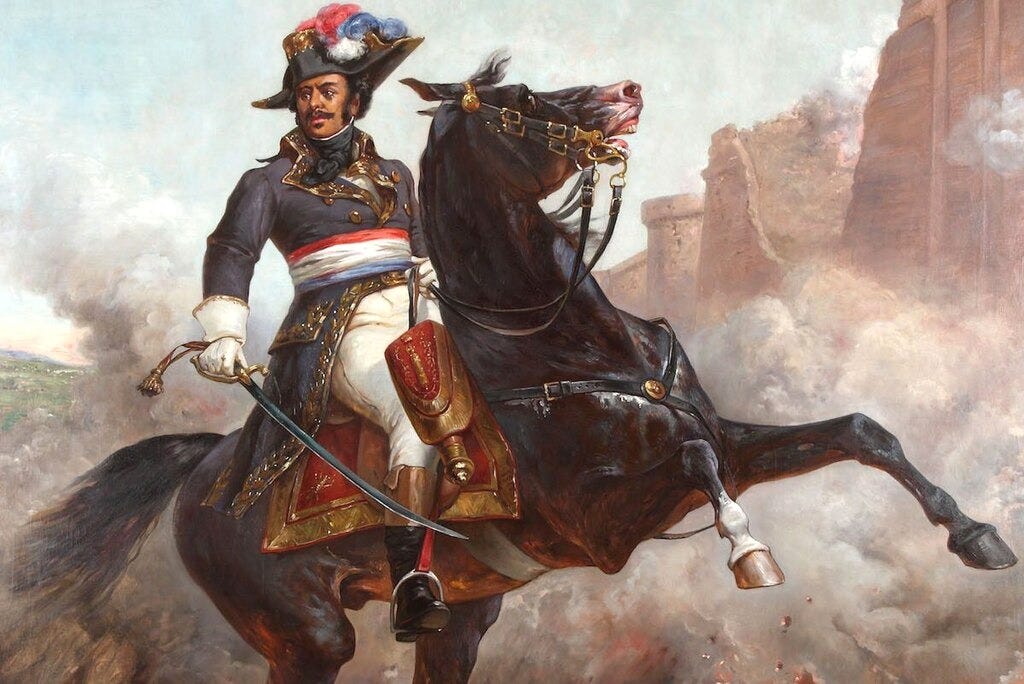
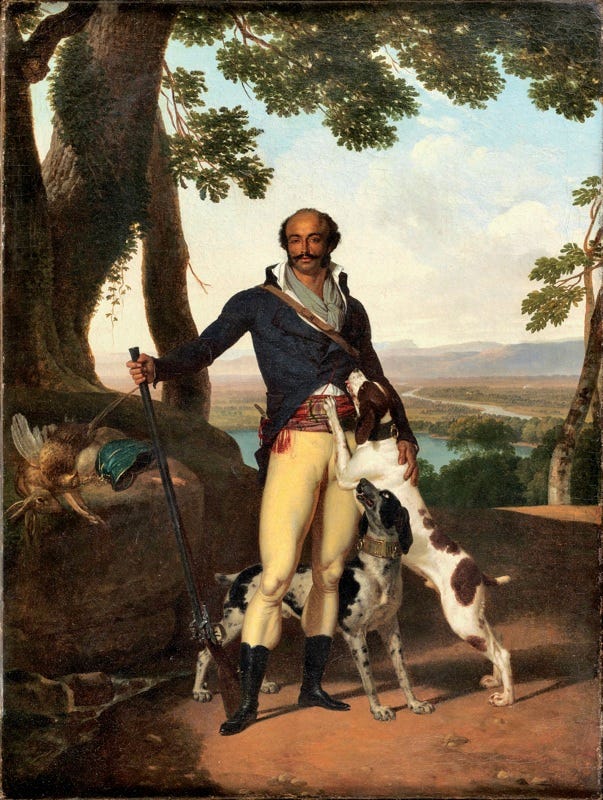
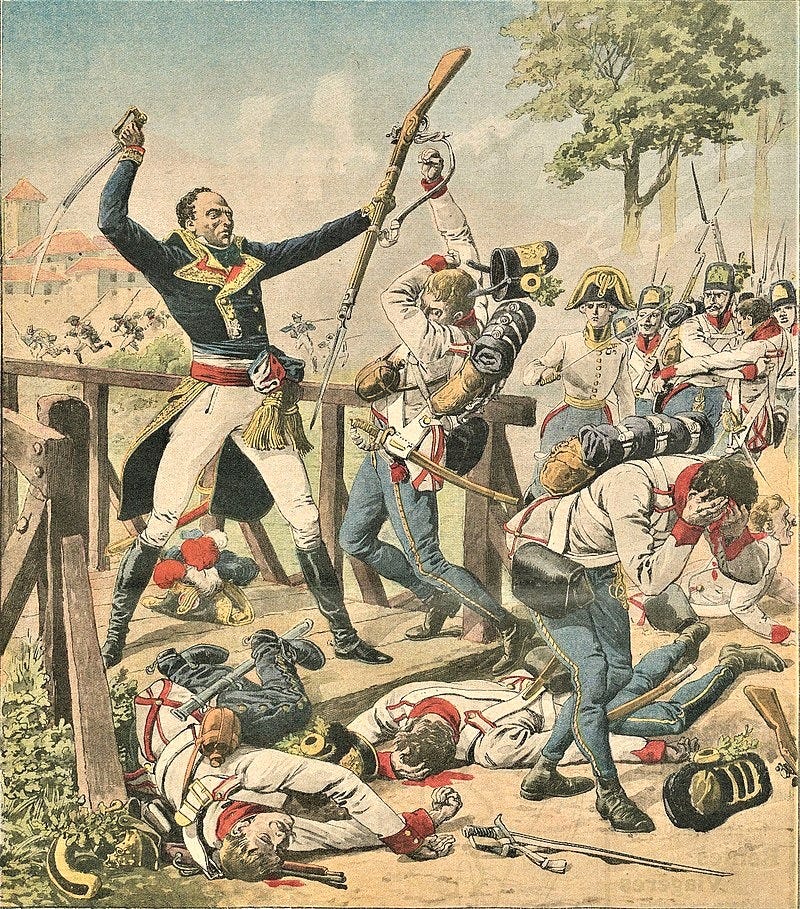
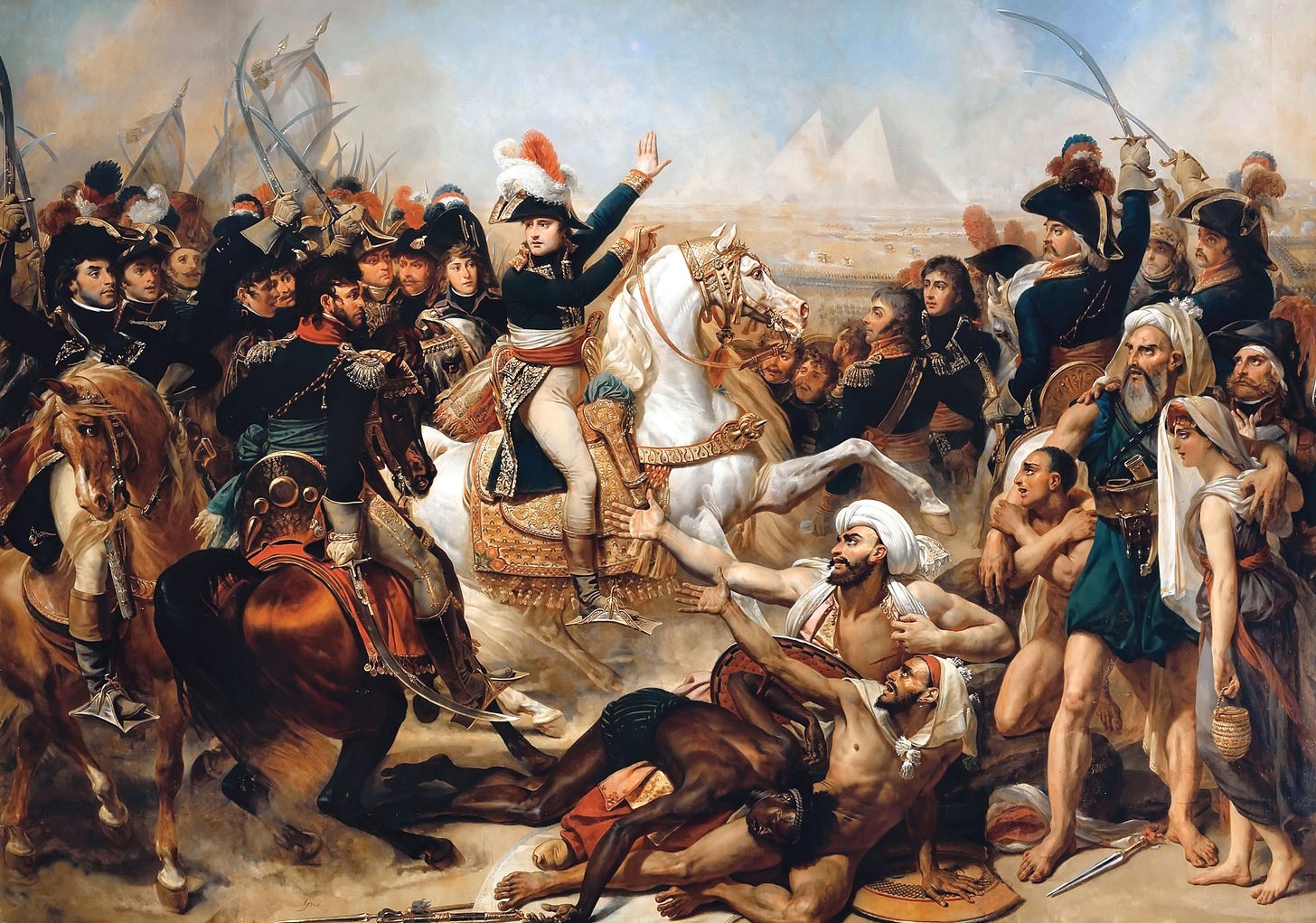
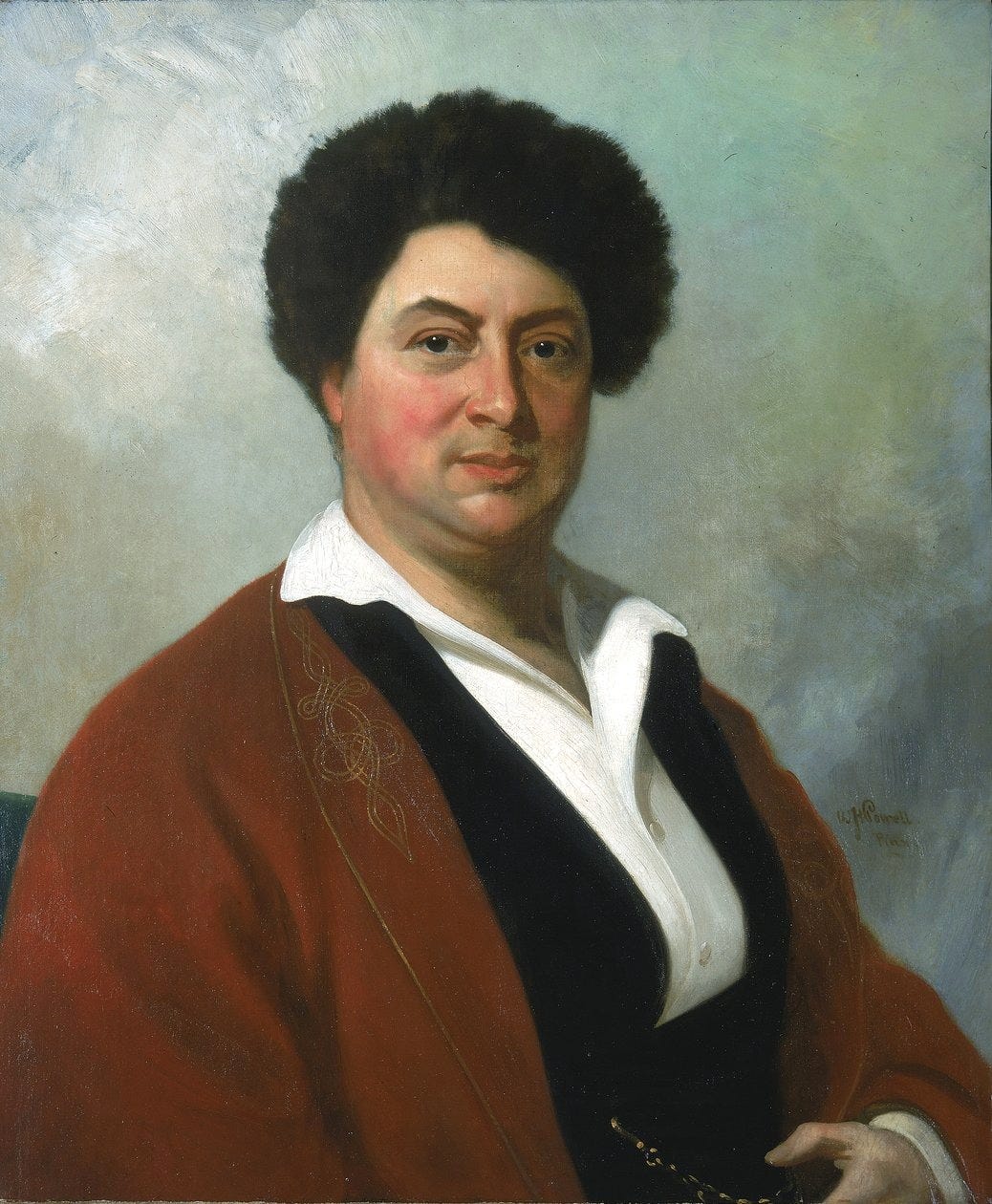
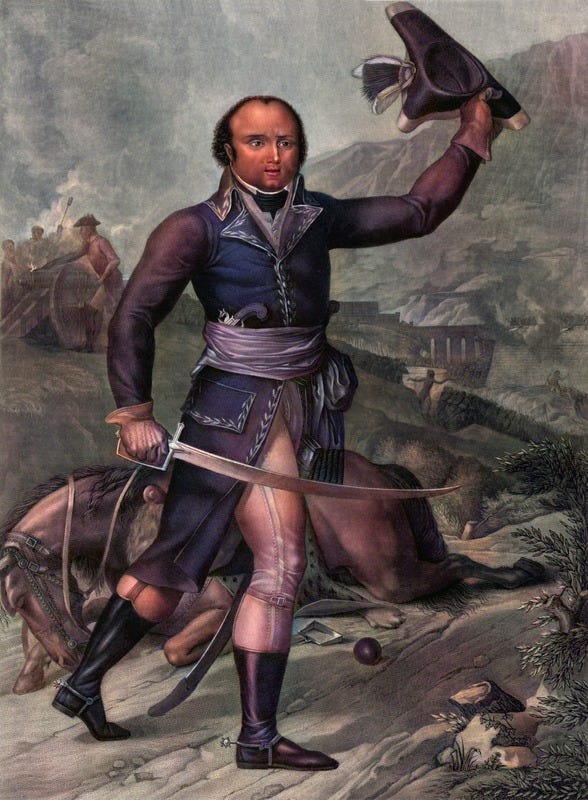
Love this and am always amazed how the back story is lost so often. My daughter is reading the count of monte cristo and this post will be a wonderful addition.
Thanks for the write-up! What a badass he was, and done so dirty, I think it's so wild his family had a general and two famous authors in it.